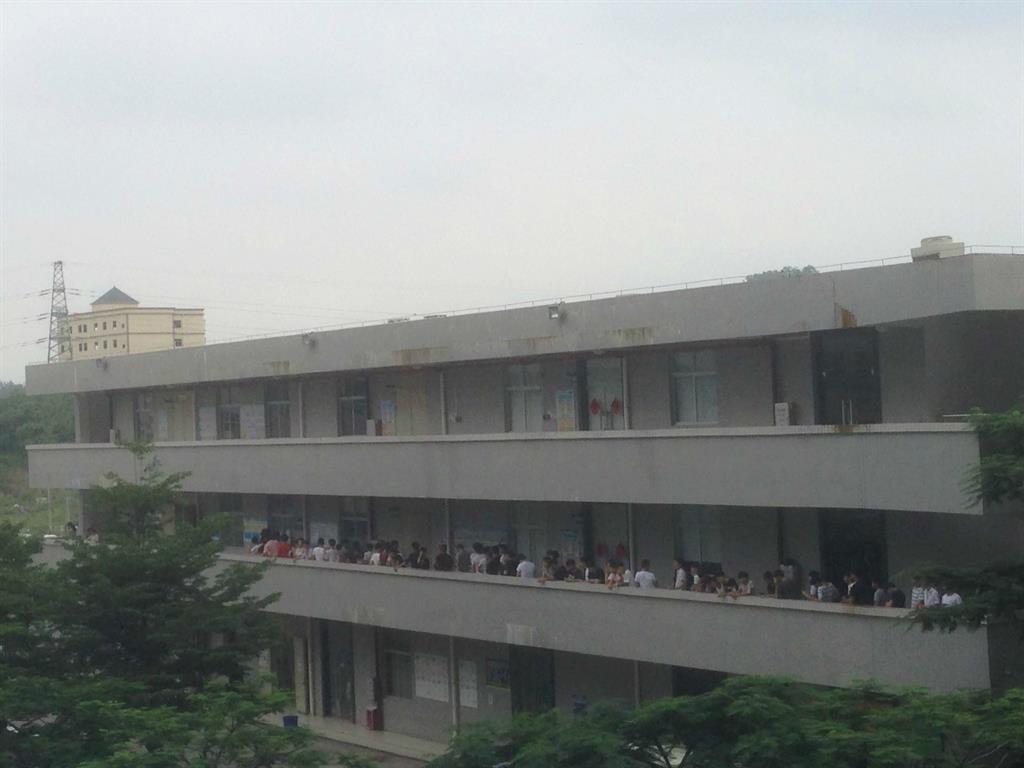China Labor Watch has investigated the working conditions at Huizhou HEG Technology since 2012 and issued investigative reports on HEG in 2012, 2014, and 2015. This current report is the fourth report on HEG.
HEG is a state-controlled company that supplies to brand companies, including Samsung, Oppo, Xiaomi and TCL. CLW’s initial investigation in 2012 into HEG uncovered major rights violations such as child labor, unpaid wages for student workers, and discriminatory hiring practices. Since CLW’s initial report and subsequent follow up investigations, there have been a number of notable improvements at HEG. As of 2015, HEG no longer employs child labor nor does it discriminate against applicants based on age or physical characteristics. In 2018, further improvements to the working conditions were implemented such as not discriminating against applicants based on gender, overtime is no longer mandatory, social insurance is purchased for workers and workers no longer need to pay for the cost of their pre-job physical examination.
(Workers waiting in long lines at the factory cafeteria)
However, in some areas, HEG has regressed. In our 2015 investigation, CLW discovered workers underwent four days of pre-job training and practice but, in our 2018 report, CLW’s investigator reported undergoing less than 24 hours of training. The 2015 report indicated there was no longer any age-based hiring discrimination, yet our 2018 report revealed that applicants older than 39 are not hired. Additionally, in 2015, workers were presented a copy of their labor contract a week after signing but in 2018, workers must now wait even longer, a month’s time, before they can request a copy of their contract.
Besides for these regressions, there have also been persistent, recurring issues like excessive overtime. Veteran workers reported that in the second half of 2017, some of them had worked 105 hours of overtime in a month, with some working 13 days consecutively. As workers receive a monthly base wage of only 1,600 RMB, workers have little choice but to work overtime to sustain their livelihoods and rejecting management’s request to work overtime negatively impacts their attendance bonus. If any problems arise during their work, workers have limited options to report the issue anonymously, as the only grievance mechanism available is a worker hotline operated by Samsung; however, no interviewed worker said they had made use of the hotline. Insufficient grievance mechanisms have left worker’s concerns unaddressed.
(Workers waiting in line to go through the metal detectors prior to entering the workshop)
Overview of violations discovered at HEG:
- Discriminatory hiring practices: applicants older than 39 years old are not hired.
- Pre-job training is insufficient and is less than the legally stipulated 24 hours.
- Resignations are all processed on the following Monday, meaning workers are unable to have their resignations processed within the legally stipulated three-day period.
- The factory does not proactively provide workers with a copy of their labor contract; workers must request a copy of their contract on their own.
- Recruitment advertisements claim workers will receive a base wage of 2,200 RMB a month but in practice, workers receive a base wage of only 1,600 RMB.
- Workers have their attendance bonus reduced if they reject working overtime.
- Fire extinguishers do not have clear inspection logs.
- Despite the presence of a labor union, workers are uninformed of its functions and are unsure about who the members of the labor union are, if there are any labor representatives, and if there are any worker meetings.
HEG has admittedly
made noticeable improvements to its working conditions and hiring practices.
HEG has come far from its 2012 situation and has taken strict measures to
prevent the employment of child labor. However, as the factory has regressed in
some aspects and failed to make significant changes in areas such as grievance
procedures, it is necessary for HEG to continue its work in improving its
working conditions. Furthermore, as Samsung’s Global Code of Conduct includes
the principle: “we comply with laws and ethical standards”, it is
necessary for Samsung to recognize the inadequacies present at one of its
supplier factories and take the steps to correct them. While Xiaomi has not
publicly released neither a Supplier Code of Conduct nor a Corporate Social
Responsibility report, it still has an undeniable responsibility to correct the
rights violations presented in our report.

(Workers waiting in line to retrieve their work uniforms )
(Workers getting dressed by the factory lockers)